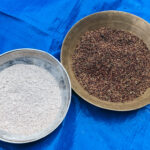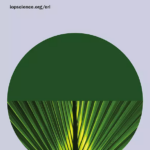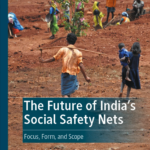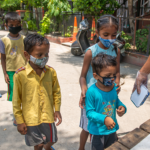Tag: Prabhu Pingali

TCI Researcher Talks Social Safety Nets in Economic Times Interview
Since its publication earlier this year, TCI’s latest book, The Future of India’s Social Safety Nets: Focus, Form, and Scope has been downloaded more than 13,000 times. TCI research associate and lead author Andaleeb Rahman recently spoke with The Economic…

Transformative Technologies Offer Bihar a Path to Net-Zero Agriculture
Bihar can make significant progress toward its goal of sustainable development by implementing three transformative technologies in the state’s agricultural sector, according to the Tata-Cornell Institute for Agriculture and Nutrition (TCI). In a special policy brief, the Institute shows that…

Two TCI Scholars Receive Degrees
Two TCI scholars received their degrees during commencement ceremonies at Cornell University on Saturday, May 25.
Vanisha Sharma received her PhD in applied economics and management from the Dyson School of Applied Economics and Management. Whitman Barrett received his MS…

Millets Are Key to Making the PDS Environmentally Friendly
In 2021–22, India spent US$17.4 billion on the Public Distribution System, or PDS. For a program that ensures food security for over 800 million people, that seems like a good bargain. However, new research on the hidden costs of the…

Reducing the True Cost of Food-Based Safety Nets: Evidence from India’s Subsidized Food Program
Abstract Public procurement of food plays a pivotal role in determining the production and consumption of various food items. This is particularly true for staple grains in countries such as India, where the government procures over 40 percent of rice and wheat. This grain is...

Op-Ed Makes the Case for Millets in the PDS
The Indian government can help to ensure that nutritious millets are accessible for all Indians by promoting their inclusion in the Public Distribution System (PDS), researchers from the Tata-Cornell Institute for Agriculture and Nutrition (TCI) argue in a new op-ed…

New Book Charts a Novel Course for India’s Social Safety Nets
With a growing economy and increasing clout on the world stage, India is a success story among developing countries, but persistently high poverty and malnutrition rates threaten to leave millions of lives behind. A new book authored by researchers at…

The Future of India’s Social Safety Nets: Focus, Form, and Scope
India’s rapid economic growth and wealth creation in the past three decades have been marred by its persistently high levels of poverty and child undernutrition, along with rising inequality. Social safety nets, for those left behind, have therefore gained in eminence as a redistributive mechanism....

Did the COVID-19 Lockdown Reverse the Nutritional Gains in Children? Evidence from Rural India
Abstract To address the missing link that goes beyond the changes in dietary consumption and food expenditures to assess the impact of the pandemic on child undernutrition, specifically anthropometric outcomes, this paper uses primary panel data (pre- and post-COVID-19) from rural India within a child-fixed...

COVID-19 Pandemic Linked to 14% Increase in Underweight Children in India
The nutrition of Indian children suffered dramatically during the COVID-19 pandemic, according to new research from the Tata-Cornell Institute for Agriculture and Nutrition (TCI) that found a sharp rise in underweight children.
In a study published in Economic and Political…

